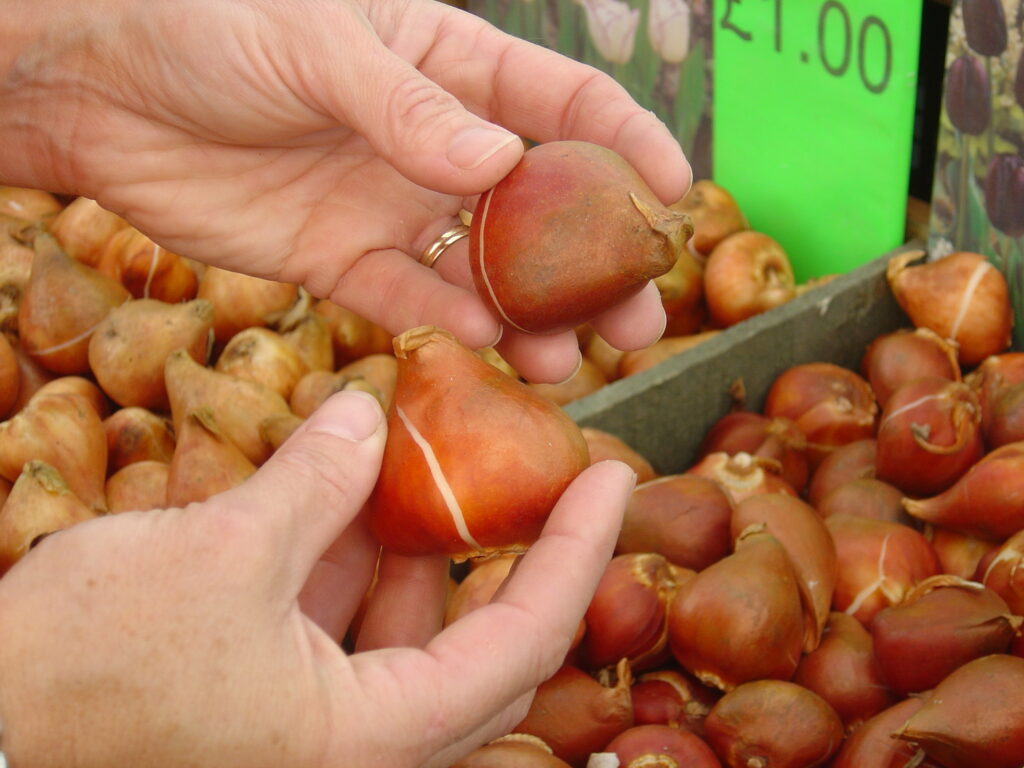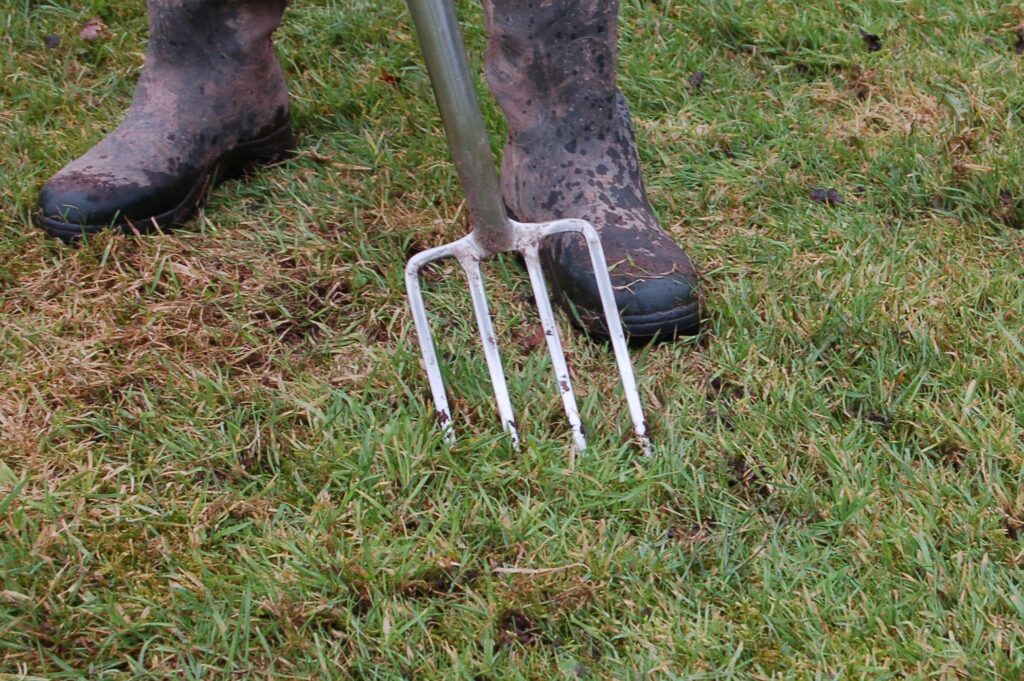Keep warm in the garden – sweep up your leaves!
If you have trees in your garden or close by one of the main jobs at this time of the year is leaf clearing. Either rake or suck leaves up with a lawn-vac to clear them off lawns and flower beds where if left they will smother the plants. All the collected leaves can be added to the compost bin where they soon rot down into lovely compost.
November is the perfect month to plant tulip bulbs now that the soil is starting to cool down. For best results plant deep, at least three times the depth of the bulb.
Mixed salad leaves and lettuce can be sown in seed trays and grown in a cool greenhouse or on a window sill to give you a fresh supply of salad leaves through the winter.
Once we’ve had a few hard frosts, dahlia can be cut down and the tubers lifted from the garden and stored in a frost free shed over winter.
Check wooden fences and trellis in windy weather and make sure any loose panels are securely nailed or screwed into place.
Now that rhubarb is dying down the old stems can be pulled off and added to the compost heap where they will quickly rot down.
To help lawns drain in wet weather spike damp areas with a garden fork. This also allows air down to the roots and helps to keep the grass healthy through the winter months.
Protect brassicas such as kale, cabbages and Brussels sprouts from pigeons by covering them over with a net to keep the birds off.
Hostas and other soft-leaved perennials that have been frosted and collapsed into a mass of dead foliage should be tidied up as the dead leaves provided the perfect cover for slugs to over-winter.
If you haven’t already done it prune rose bushes down by around half. This gives the plant a well-earned rest, prevents it rocking around in the winter and tidies them up.

